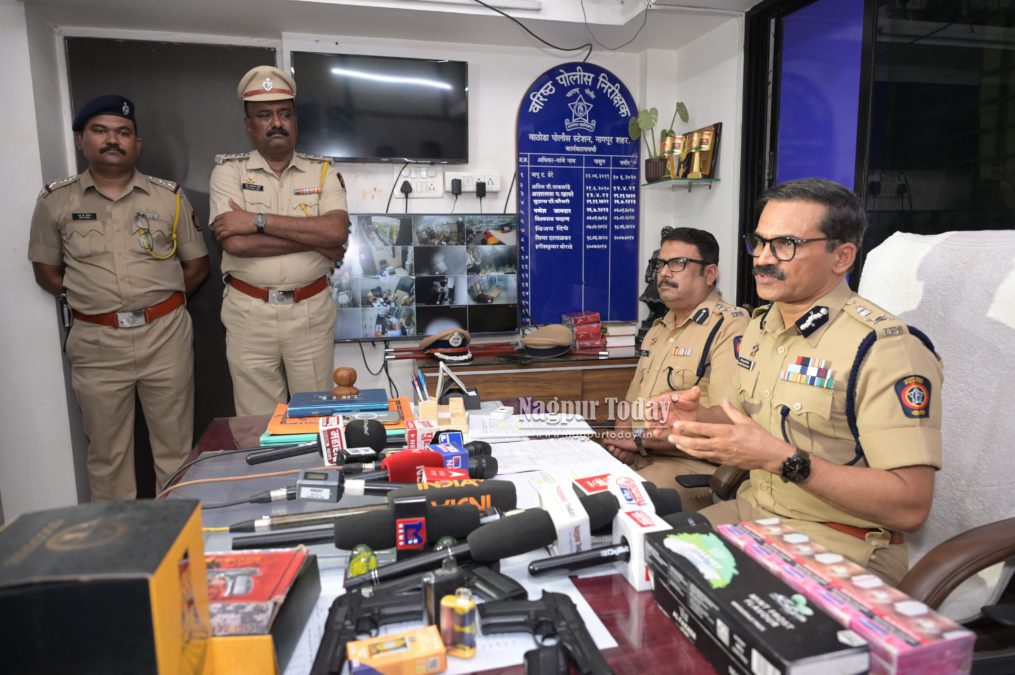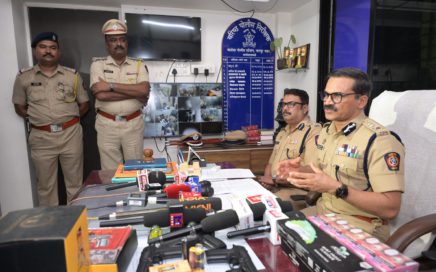 The recent high-profile crackdown under Mission AXE by Nagpur Police—touted as a decisive strike against illegal e-cigarettes, hookah products, and unauthorized tobacco sales—has sparked both applause and skepticism. While the operation made national headlines and appeared to be a bold anti-drug measure, many Nagpur residents are left wondering: Is this enough? Or just a carefully staged media event to deflect attention from rising crime in the city?
The recent high-profile crackdown under Mission AXE by Nagpur Police—touted as a decisive strike against illegal e-cigarettes, hookah products, and unauthorized tobacco sales—has sparked both applause and skepticism. While the operation made national headlines and appeared to be a bold anti-drug measure, many Nagpur residents are left wondering: Is this enough? Or just a carefully staged media event to deflect attention from rising crime in the city?
Mission AXE: Commendable, But Selective?
No doubt, seizing ₹43 lakh worth of contraband from Texas Smoke Shops and hidden godowns is noteworthy. Involving over 125 personnel and 25 officers, the operation was meticulously planned and aggressively executed. But one can’t help but ask—why now? And why only these establishments?
Local residents and insiders suggest that these outlets were operating in plain sight for months—if not years—right under the nose of local police stations. It’s no secret that the existence and operation of such shops are common knowledge in the neighborhoods they serve. So, what changed overnight?
Some allege that the motivation for the raids may not have been entirely about public health or law enforcement. The recent spike in violent crimes, thefts, and drug-related offenses in Nagpur has garnered negative media attention, tarnishing the city’s image. Was this operation a media distraction tactic to create an illusion of action?
The Elephant in the Room: Clubs and Pubs
If Nagpur Police truly wants to crack down on illegal substances, the next logical step should be targeting the clubs and pubs that have increasingly become epicenters for drug abuse, hookah, and under-the-radar illegal sales of e-cigarettes. Surprisingly—or perhaps conveniently—these venues remain untouched.
Many such establishments operate within 100 meters of police stations, yet continue to flout rules on operating hours, alcohol licensing, and age restrictions. Eyewitness accounts suggest that these venues stay open well past legal hours, often becoming dens of drug consumption, illicit trade, and even sex trafficking. Still, there is little to no record of recent police action against them.
Why?
Protection or Negligence?
Rumors are rife that many of these clubs and pubs function under mutual arrangements with local law enforcement officers. Protection rackets, bribes, or just willful ignorance—call it what you will—there’s an undeniable pattern of selective enforcement.
One glaring example is the blatant promotion of “Saturday Night” parties. These events are aggressively marketed by social media influencers who are compensated with free entry, alcohol, and perks, in exchange for luring young crowds to these high-risk venues. Nagpur’s Cyber Police, equipped with the tools to monitor online content, appears to be doing nothing to regulate this digital advertising of potentially illegal activity.
The Rising Crime Graph: A Wake-Up Call
Recent months have seen an alarming surge in crimes across Nagpur—robberies, chain snatching, gang violence, and drug abuse are now regular headline fodder. Residents are increasingly feeling unsafe. Parents are worried. Businesses are anxious. And the city’s reputation is on the line.
Yes, Mission AXE is a step in the right direction. But in isolation, it feels like a PR band-aid on a hemorrhaging wound.
A Call for Comprehensive Action
Nagpur Police must realize that real reform doesn’t come with one-time, headline-grabbing raids. It comes with consistency, transparency, and an unrelenting pursuit of justice—regardless of who’s involved. If the police truly aim to dismantle drug networks and protect public health, no area, no pub, no club, and certainly no police station should be off-limits.
Conclusion: Nagpur Deserves Better
Nagpur citizens want more than photo-ops. They want their city back.
It’s time for Nagpur Police to show that Mission AXE was not just about optics but about true systemic change. That requires holding all venues accountable—smoke shops, yes—but also the nightlife hotspots that have turned into breeding grounds for crime. And most importantly, it requires introspection: If the rot lies within the force itself, will the axe fall there too?
Because justice, if it is to be believed in, must be blind—and it must swing equally.














